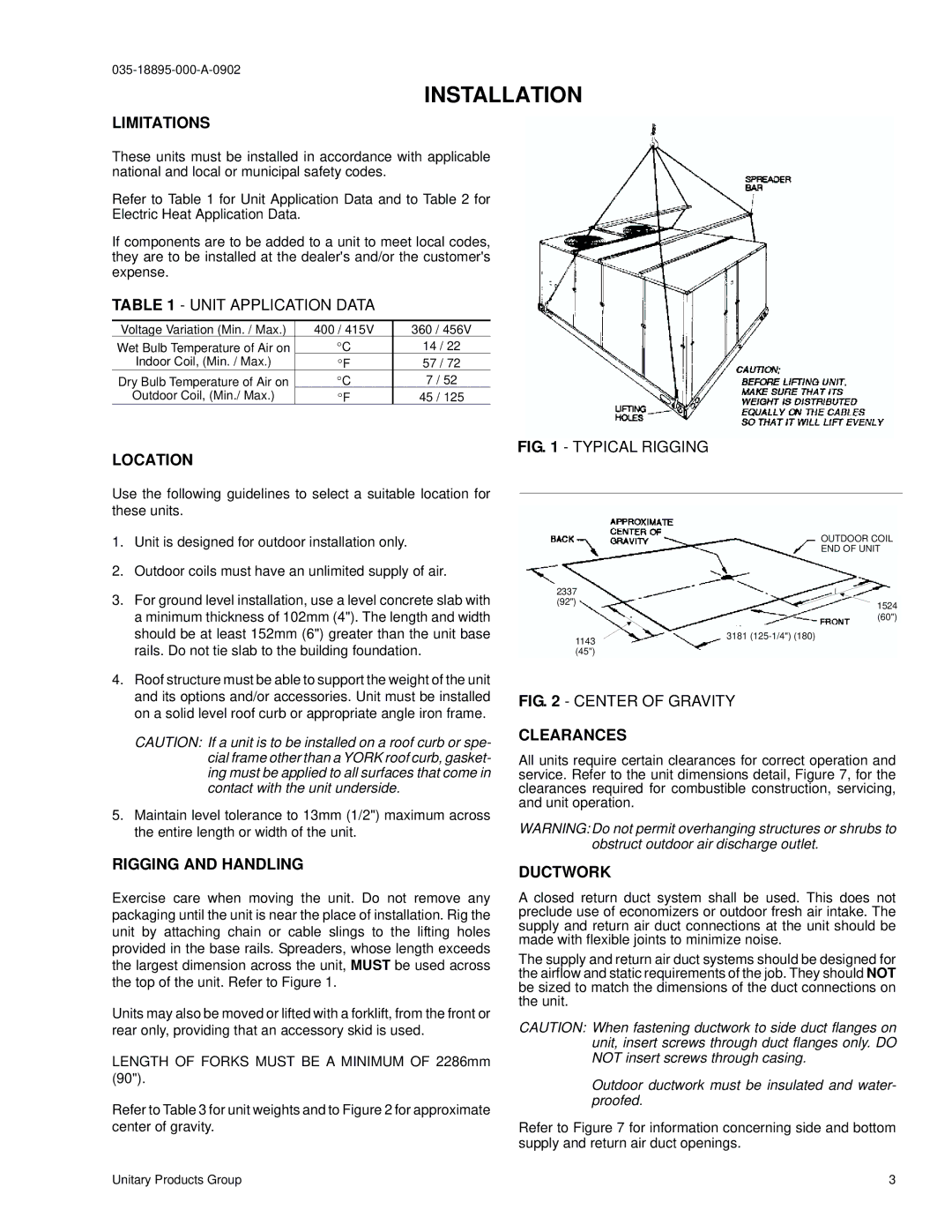B2CH180 specifications
The York B2CH180 is a notable addition to the world of commercial heating and cooling systems, designed to meet the demands of a wide range of applications. As part of a renowned legacy in HVAC (Heating, Ventilation, and Air Conditioning) solutions, the B2CH180 unit brings a combination of efficiency, reliability, and innovative technology to ensure optimal performance.At its core, the York B2CH180 features a high-efficiency, two-stage compressor that significantly enhances its operational effectiveness. This design not only enables precise temperature control but also ensures quieter operation, making it suitable for various environments, including schools, offices, and retail spaces. The two-stage compressor operates at different capacity levels, allowing for better modulation of the system's output based on real-time demands.
One of the standout characteristics of the B2CH180 is its exceptional energy efficiency. With advanced SEER (Seasonal Energy Efficiency Ratio) ratings, this unit helps users to lower energy costs while minimizing their environmental footprint. The use of eco-friendly refrigerants, compliant with the latest regulations, further emphasizes York’s commitment to sustainability.
In terms of control technologies, the York B2CH180 integrates sophisticated smart controls that allow for seamless connection to building management systems. These controls facilitate remote monitoring and adjustment, providing facility managers with valuable insights into operational efficiencies. They can also enable predictive maintenance, alerting users to potential issues before they escalate.
Additionally, this model prioritizes ease of installation and maintenance. Its modular design and accessible components ensure that technicians can perform required services quickly, reducing downtime and enhancing system reliability. The durable construction of the B2CH180, including weather-resistant housing and corrosion-inhibiting coatings, contributes to its long lifespan and low maintenance needs.
The York B2CH180 is also compatible with various accessories and add-ons, allowing for customization based on specific heating and cooling needs. Its versatile application range makes it suitable not only for commercial spaces but also for industrial uses, where powerful performance is essential.
In conclusion, the York B2CH180 is a cutting-edge solution that embodies efficiency, innovative technology, and user-friendly features, making it a top choice for businesses looking to optimize their HVAC systems and enhance occupant comfort.

